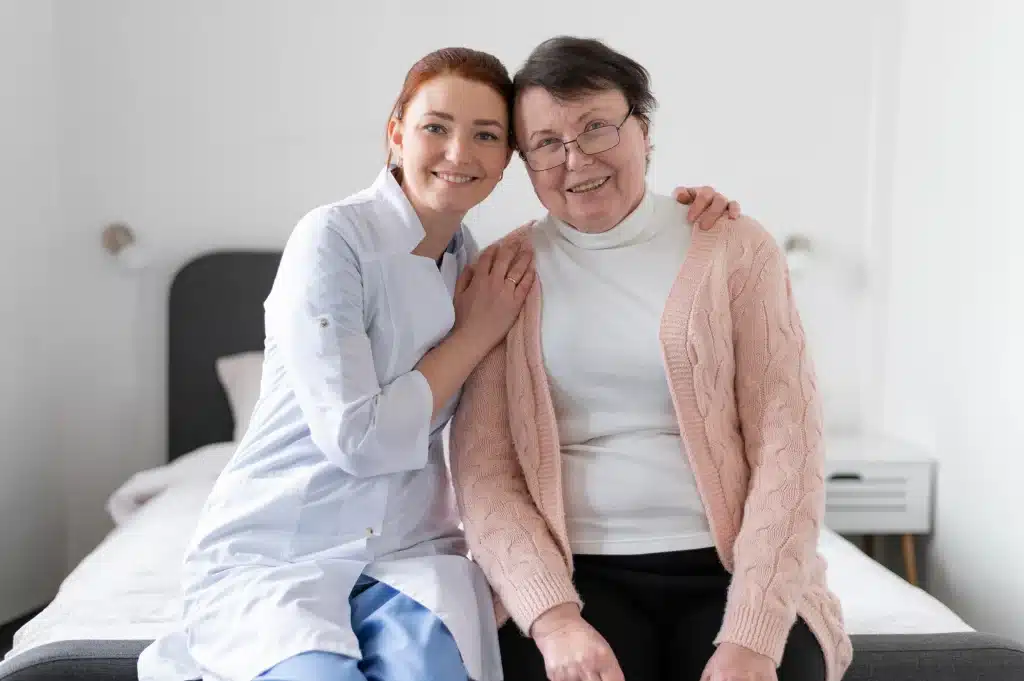In the ever-evolving world of healthcare, caregivers are the unsung heroes who bridge the gap between medical expertise and compassionate support. CPT Code 97550 emerges as a pivotal tool, empowering caregivers with the specialized training they need to enhance patient outcomes. This code represents more than just a billing identifier—it’s a gateway to equipping caregivers with strategies that improve functional independence and foster recovery. In this article, we’ll explore the profound impact of CPT Code 97550, delving into its benefits, challenges, and the resources available to elevate caregiver training and patient care to new heights.

Measuring Outcomes of CPT Code 97550 Interventions
The efficacy of interventions associated with CPT code 97550 can be systematically assessed through various performance metrics. By tracking patient progress and incorporating consistent data collection methods, healthcare providers can evaluate the success of targeted therapeutic activities that improve patient outcomes. Key performance indicators, such as functional mobility improvements and patient participation levels, are essential for a comprehensive understanding of the treatment's impact. Establishing a robust framework to measure these outcomes is crucial for ensuring that services align with the overall goals of rehabilitation.
Moreover, utilizing two-way communication with caregivers and clients can enhance the assessment process. Gathering feedback allows healthcare professionals to identify areas for improvement while fostering collaboration among all parties involved. Standardized reporting methods will further contribute to meaningful evaluation, enabling providers to refine their practices based on solid empirical evidence tied to CPT code 97550 interventions. This structured approach not only promotes optimal treatment results but also reinforces accountability within the rehabilitation setting.
Ready to ensure your claims are accepted? Learn how to avoid denials and streamline your billing process today
Key Performance Indicators to Consider
Evaluating the effectiveness of CPT Code 97550 interventions requires clear key performance indicators (KPIs). These indicators provide metrics to assess patient outcomes and the overall impact on rehabilitation goals. Important KPIs include improvements in range of motion, functional independence, and patient-reported satisfaction scores. Tracking these metrics assists healthcare providers in making informed decisions about the effectiveness of therapy interventions and adjustments to treatment plans as needed.
Another critical aspect involves monitoring caregiver engagement and support levels provided during these interventions. Assessments of caregiver feedback, participation rates in training sessions, and their reported confidence in executing therapy techniques can shed light on the program's effectiveness. By reviewing these indicators, practitioners and agencies can identify areas for improvement and implement targeted strategies to enhance caregiver readiness and patient recovery experiences.
| Key Performance Indicator | Measurement Method | Target Outcome |
|---|---|---|
| Range of Motion Improvement | Pre- and post-treatment assessments | 25% increase |
| Functional Independence Score | Standardized functional assessments | Decrease in assistance needed by 30% |
| Patient Satisfaction Score | Patient surveys and feedback forms | 90% satisfaction rating |
| Caregiver Training Participation | Tracking attendance records | 80% participation in training sessions |
| Caregiver Confidence Level | Pre- and post-training self-assessments | Increase in confidence by 40% |

Challenges in Training Caregivers
Training caregivers presents various obstacles that can impede effective intervention and support for patients. One significant challenge involves the diverse learning styles and backgrounds of caregivers, which can lead to inconsistent understanding and implementation of techniques. Providing tailored training that accommodates these differences is essential to enhance the caregivers' ability to execute interventions like those associated with CPT Code 97550.
Another considerable hurdle lies in the emotional and physical demands placed on caregivers. Many caregivers may experience burnout, which can diminish their motivation and engagement during training. Addressing these issues requires creating a supportive training environment that fosters resilience and equips caregivers with effective strategies for self-care. By recognizing these challenges, organizations can better prepare caregivers to perform their roles effectively while ensuring high-quality patient care.
Common Obstacles and Solutions
Caregivers often encounter various barriers when implementing interventions associated with CPT Code 97550. One major obstacle is the lack of proper training, which can lead to ineffective application of therapeutic techniques. To address this challenge, caregivers can seek specialized workshops and refresher courses. Training programs focused on practical strategies can significantly enhance the skill set of caregivers, enabling them to feel more confident in their roles.
Another common issue revolves around the emotional and physical demands that caregivers face daily. Burnout may occur when caregivers do not have access to adequate support systems. Building a robust network that incorporates healthcare professionals, peer support groups, and community resources can provide essential relief. This collaboration not only fosters emotional well-being but also promotes information sharing, enhancing the overall quality of care for individuals receiving interventions.
Resources for Caregivers
Caregivers play an essential role in supporting individuals undergoing interventions associated with CPT Code 97550. Access to valuable resources can significantly enhance their ability to provide effective care. Online platforms such as webinars and virtual workshops offer valuable guidance on best practices. Additionally, community programs provide opportunities for hands-on training and skill development. Utilizing these resources equips caregivers with knowledge and tools necessary for optimal patient support.
Various materials are available to boost the confidence and efficiency of caregivers. Instructional books and manuals can serve as references, helping caregivers navigate challenges that may arise during interventions. Mobile applications designed for care management streamline communication and facilitate easier tracking of progress and needs. Engaging with local support groups fosters a sense of community and shared experiences while allowing caregivers to obtain practical advice and emotional support. These resources contribute significantly to caregiving effectiveness.
Recommended Materials and Programs
Effective resources play an essential role in equipping caregivers with the tools necessary for successful interventions under CPT Code 97550. Evidence-based materials, such as interactive training programs and informative manuals, provide caregivers with specific strategies to address complex patient needs. Programs that emphasize hands-on techniques and incorporate the latest in therapeutic modalities enhance the caregiver's ability to implement treatment goals effectively. Furthermore, webinars authored by experienced professionals can offer valuable insights into best practices and current trends in rehabilitation strategies.
Additionally, online platforms dedicated to caregiver support can foster a sense of community and collaboration among those working with patients. Such resources often include forums, educational articles, and supportive networks that facilitate knowledge exchange. Caregivers may benefit from workshops that focus on skill development, enabling them to remain informed about advancements in patient care. The integration of these recommended materials and programs into daily practice can markedly improve the outcomes of interventions tied to CPT Code 97550, enriching both the caregivers' experiences and the patients' rehabilitation journeys.

Collaborating with Healthcare Professionals
Effective collaboration with healthcare professionals is essential for optimizing patient care and enhancing outcomes. This partnership allows caregivers to access critical insights and strategies tailored to the unique needs of the individuals they support. Establishing open lines of communication with doctors, therapists, and other specialists enables caregivers to stay informed about treatment plans, medication regimens, and any relevant changes that may impact care. These dynamics ensure a cohesive approach to patient management, fostering a shared commitment to measurable improvement.
Integration of knowledge from healthcare professionals enriches the caregiver’s skill set and promotes best practices. Regular meetings and discussions can create a supportive environment where caregivers feel empowered to ask questions and share experiences. Such collaboration not only enhances the caregivers' confidence but also drives better adherence to prescribed interventions. The alignment of goals among all parties involved ultimately leads to a holistic approach to care, paving the way for improved health outcomes and quality of life for those receiving support.
Establishing a Support Network
Building a robust support network is essential for caregivers managing clients undergoing interventions associated with CPT Code 97550. Engaging with healthcare professionals, such as occupational therapists and physical therapists, creates a cooperative framework that enhances client outcomes. These professionals can offer valuable insights, evidence-based strategies, and resources that empower caregivers to provide optimal care. Encouraging open communication within this network ensures that caregivers remain informed about the latest practices, fostering a continuous learning environment that benefits both caregivers and clients.
Incorporating community resources also strengthens the support network for caregivers. Local organizations often provide workshops, peer support groups, and educational materials that can enhance skills and knowledge. Leveraging these resources allows caregivers to connect with others in similar roles, sharing experiences and strategies. Additionally, maintaining regular communication with healthcare professionals promotes a holistic approach, integrating multidisciplinary perspectives that ultimately lead to more comprehensive care for clients.





